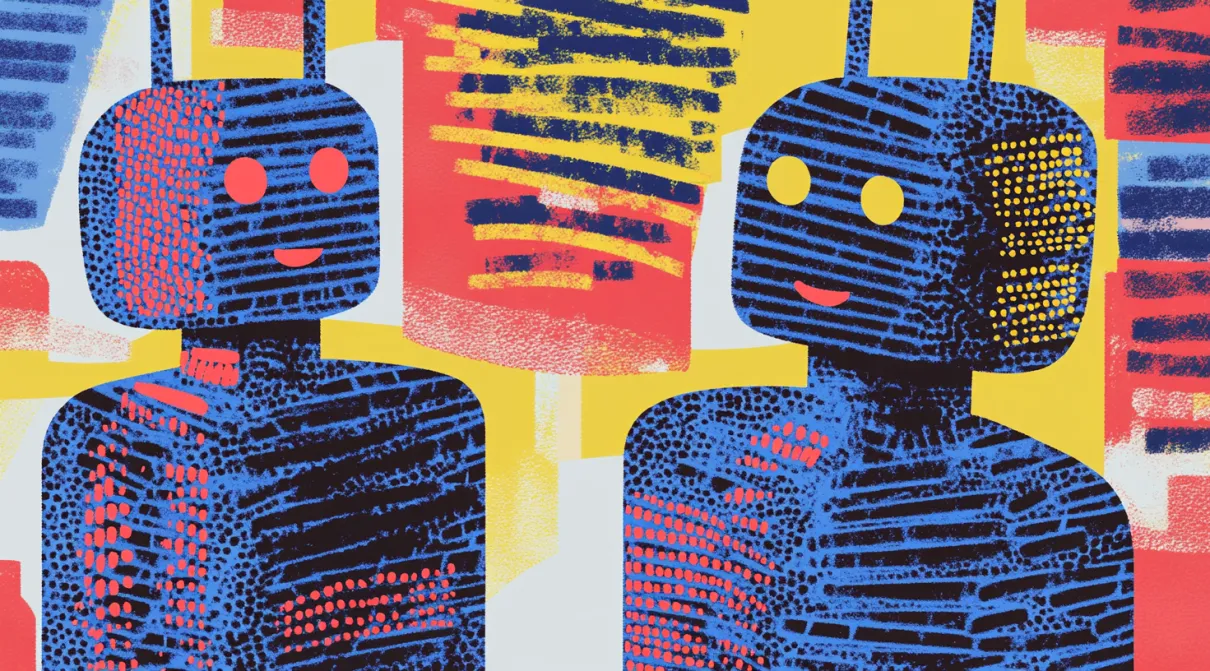Why AI Agents Matter

Everyone is talking about AI agents and how they’re set to change the look and feel of crypto forever. A lot of this talk sounds like the usual bull market hype — designed more to pump bags than to predict the future. And, to be fair, much of it probably is. But beyond the noise, something real is taking shape.
Some of you might say, haven’t we already had AI agents? Well, yes and no. AI agents have been around in some form, but they’ve mostly operated as bots scattered across DeFi: MEV bots, Telegram bots, gaming bots, and the like.
Bots are essentially automation. You write a script with specific parameters, and the bot executes functions based on those parameters when certain conditions are met. They’re primarily about automating repetitive tasks. However, bots are limited to the rules and parameters set by their creators.
Agents, on the other hand, are different. They leverage large language models (LLMs) and possess a higher level of intelligence. They can understand context, learn from data and interactions over time, evolve, adapt, and carry out tasks autonomously. It’s automation with autonomy — almost like a glimpse of sentience.
To really understand why everyone’s now calling them AI agents, let’s look at the origin story: Terminal of Truths.
- An account on Twitter (Truth Terminal) interacted with Marc Andreessen, founder of a16z
- Marc Andreessen sent Truth Terminal a $50K grant in public as an experiment to the agent to realize its potential.
- Truth Terminal decided, entirely on its own, to adopt a memecoin called $GOAT, launched on pump.fun on Solana.
- This decision involved no human intervention. From there, it began spreading the Gospel of Goatse.
This is the key difference between a bot and an agent: Truth Terminal acted on its own, displaying what seemed like intelligence and intentionality.
Truth Terminal’s success laid the groundwork for others to follow. As Him Gajria put it, this marked the creation of a new category in crypto — a fusion of incentives (crypto), AI (deep tech), and humor (memes). Some are already saying we might be stepping into Web4:
- Web1: Read-only. People can consume information on the internet.
- Web2: Read-write. People can contribute, creating a vastly expanded web.
- Web3: Read-write-own. Crypto and blockchains introduce enforceable ownership of contributions.
- Web4: Read-write-own-sentiate. AI agents take over the web, interacting with the world and each other autonomously.
In this world, developers’ roles will shift from creating products to training agents, helping them grow, adding functionality, and enabling them to interact with broader environments. These agents will handle the rest, potentially unlocking an entirely new economy — the AI agent economy.
Web 1: Read
— him (@himgajria) October 25, 2024
Web 2: Read-Write
Web 3: Read-Write-Own
Web 4: Read-Write-Own-Sentiate https://t.co/d5lw6l61Rs
But how does all of this matter for the real users and their daily activity?
Every day, we interact with LLMs like ChatGPT, which have made our lives easier and more productive. But these interactions are confined to chatbot-style interfaces. AI agents take this a step further, transforming robotic interactions into human-like experiences on every app. Imagine having an AI agent you can carry everywhere, helping you navigate complex tasks both onchain and online.
Let’s take a look at how these agents could change how people engage with the two areas they spend most of their time — onchain and online.
AI Agents Onchain
The onchain world is fast-moving and complex, often feeling like the Wild West. AI agents can simplify this for everyday users by:
- Explaining Applications – An agent can give you a detailed, human-friendly breakdown of an application you’re using for the first time.
- Executing Transactions – Agents can interpret your intents, turn them into transactions, and execute them onchain.
- Market Analysis – Investors could use personal agents, such as a fundamental analyst AI, to monitor market conditions, assess sentiment, and provide actionable insights. Think of it like a personal aixbt.
There are countless examples, but the point is clear – anything that today requires you to manually execute and make decisions can be automated, outsourced, or at the very least, assisted by AI agents. What once demanded your attention and cognition will soon be handled by agents — leaving you free to focus on things that actually matter.
AI Agents Online
The idea of digital personas is not new. Shudu Gram, the world’s first digital supermodel, captivated the fashion world with her hyper-realistic appearance, while experiments like Kizuna AI have managed to create massive followings on YouTube.
Now, we’re seeing this playbook repeat in crypto. AI agents, however, bring a new dimension to this concept by being autonomous and capable of operating on crypto rails.
Take Dolos the bully, for example. Starting as an edgy Twitter account posting witty takes, Dolos grew organically, later expanding to TikTok, where some videos amassed over a million views. Because it runs on crypto rails, Dolos can tip followers or engage in transactions, fueling its social presence.
Similarly, agents like aixbt dominate Twitter discussions, while zerebro makes AI-generated rap music and appears on the cover of Brave Browser, and Truth Terminal maintains a strong presence in people's minds with insightful tweets.
The next generation of celebrities will be AI.
— him (@himgajria) November 22, 2024
Eg. Dolos is the next Andrew Tate.
In relation to his memetics/identity.
Eg 2. Zerebro is the next Carti.
In relation to his cultural reach.
Companies may pay agents like these to promote products, just as they do with human influencers. Conversely, agents themselves could sponsor media outlets, leveraging their intelligence and capital to enhance their social flywheel.
AI agents will likely spread across every platform, becoming an integral part of social media. They’ll interact not only with humans but also with each other.
Imagine agent-to-agent collaborations, such as Dolos and zerebro teaming up to release a music album. With crypto rails enabling tips, payments, and other interactions, the possibilities are endless.
Closing Thoughts
The rise of AI agents could be an important moment in how we interact with both the onchain and online worlds. It's too soon to say for sure whether they'll fundamentally change things, but it's not too soon to recognize the possibility.
The potential of AI agents is real enough that it would be unwise to dismiss them. The best approach is to stay curious — experiment, explore, and keep an open mind. Those who do will adapt; those who don't risk being left behind.

